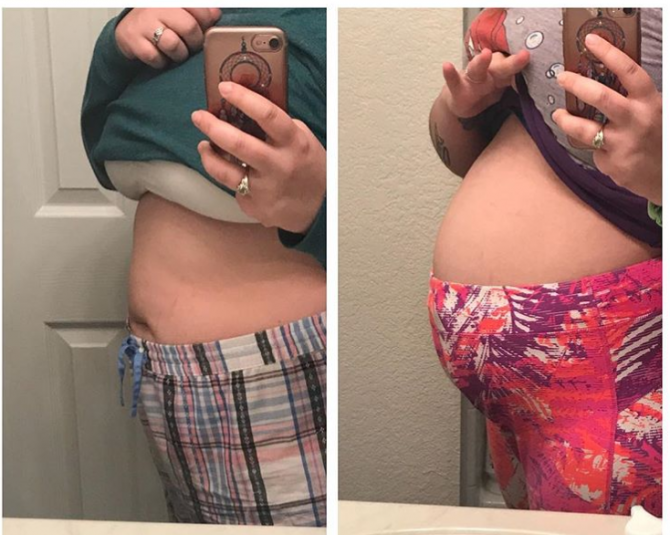Severe bloating in women with endometriosis, also known as “endo belly” is often painful and uncomfortable and takes a toll on self-image.
Endo belly is a complex situation as endometriosis is a complex disease. Even a CT scan, cannot reveal the cause why it is happening.
There are a few theories:
- Endometriosis causes adhesions that can reduce the mobility of the bowel.
- Endometriosis lesions can flare at different parts of the menstrual cycle, which can cause an immune response, which includes swelling.
- The ectopic endometrial tissue growing on other organs, at the time of menstruation is also bleeding internally, and the body gets inflamed.
- Endometriosis patients can be more sensitive in regards to how their intestines and gut process food. Endo belly could be a side effect of the intestines working overtime.
There is no proven explanation on what causes bloating with endometriosis, so there is no official cure for endo belly.
1. Make sure it is only endo belly
Several diseases and conditions are marked by severe swelling. Women with endo are more prone to Small Intestinal Bacterial Overgrowth (SIBO), which is often characterized by painful bloating, constipation, and painful bowel movements. Fibroids or cysts may also lead to bloating as well as Irritable Bowel Syndrom.
2. Track food and water
Log food and water intake. It helps you to identify patterns. Get advice from a dietitian/nutritionist about food that your body reacts to.
Nutritionists and wellness advocates recommend mindful eating, which includes sitting upright at the table for meals and undistracted consumption with thorough chewing. All of this helps support digestion and reduce bloating risk.
3. Check your gut
Try an anti-inflammatory diet. The best way to find your version of this diet is to start with an elimination diet, slowly add things back in, and note when endo belly occurs. Eliminate those foods. Your dietitian can help you through this process.
The following are regularly recommended to endo patients: generally eliminate alcohol, gluten, dairy, eggs, soy, red meat, preservatives, artificial sugars, and caffeine.
Women report positive experiences with the keto diet and low-carb diets, but also with natural remedies like drinking fresh celery juice first thing in the morning.
There’s no one diet for endometriosis. You have to see what’s best for you and what you react to.
4. Check your hormones
Endometriosis comes with hormonal imbalance. Keeping blood sugar balanced will help support proper hormone balance. Make an appointment with an endocrinologist. Acupuncture may help balance hormones, it has been found to release norepinephrine and put us in a state of rest and digest, which is when our body can begin healing itself.
5. Workout
Many women are afraid to workout when they are in pain, but exercising will actually decrease the pain over time, because it helps with the circulation of the blood, reduce stress, and maintain nutrient and oxygen flow to the whole body. Gentle twisting motions will aid in circulation and movement through the abdominal region and help with pain as well as bloating.
6. Get enough sleep
The body repairs itself during deep sleep. Sleep deprivation can cause hormonal and metabolic changes and increase pain and stress responses (and thus bloating), and women with endo often struggle with insomnia. Popular sleep inducing recommendations include lavender scents, blue light phone filters in the evenings, eliminating electronics after a certain time, and chamomile teas.
7. Limit the stress
Stress fuels endometriosis and its symptoms, and endometriosis creates physical and mental stress, so the cycle needs to be slowed as much as possible. Breathing exercises, physical and emotional therapy, and exercise have been essential for many endo women.
Sources: https://www.endofound.org/endo-belly
https://www.health.com/menstruation/endo-belly
Image: https://www.instagram.com/p/Bfbd_88gkng/
